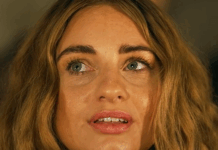By Mark Ellis —
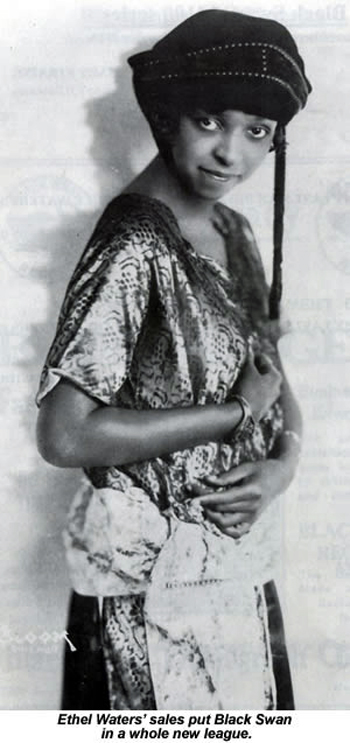
Can you name the woman nominated for an Emmy and an Academy Award whose birth resulted from a teen mom raped at knifepoint?
To many, the “byproduct” of such a crime would only be worthy of abortion. But Ethel Waters was born long before abortion became legal, and her life stands as a testimony to the value God places on children born out-of-wedlock – even those conceived by rape.
Her mother, Louise Anderson, was only 13 when a family acquaintance held a knife to her throat and raped her.
Sadly, Ethel’s mother was ill prepared for motherhood and neglected her daughter. So Ethel went to live with her grandmother, who worked as a housemaid.
She attended church with family members and believed in Jesus as a teen, but a searing incident caused her to drift from the Lord.
One day a rival girl attacked her savagely and clawed at her face. Ethel fought back and did not “turn the other cheek.” As she reflected later on the vicious fight, she thought she should have run from the girl. She carried a burden of guilt for many years, concluding that a Christian would not have done such a thing.
When Ethel walked away from Jesus, it was almost permanent, lasting nearly her entire life.
In childhood, Ethel never lived in the same place for more than 15 months. “I never was a child,” she reflected later. “I never was cuddled, or liked, or understood by my family.”
Ethel got married at 13, but the marriage was short-lived due to her husband’s abuse. She ran from him and became a maid in a Philadelphia hotel, working for less than a dollar a day.
On her 17th birthday, she attended a party at a nightclub and was encouraged to sing two songs. The audience was so impressed she was offered work at the Lincoln Theatre in Baltimore.
After her start there, she found work on the black vaudeville circuit, where she worked “from nine (o’clock) until unconscious.”
In 1919 she moved to Harlem, where she found steady work in nightclubs and began to be noticed. Two years later, she became only the fifth black woman to cut a record. Her first hit came from recording “Dinah” in 1925 with Columbia Records.
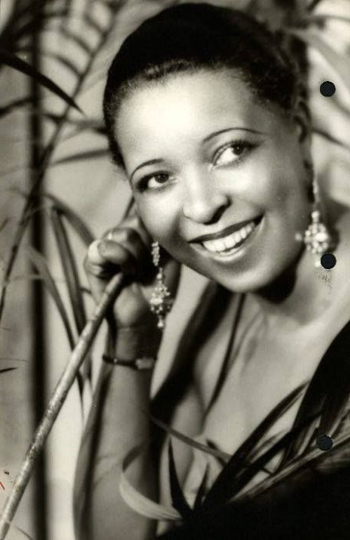 At New York City’s “Cotton Club” she introduced “Stormy Weather,” which became a top hit on Billboard’s charts. She wrote later, “I was singing the story of my misery and confusion, the story of the wrongs and outrages done to me by people I had loved and trusted.”
At New York City’s “Cotton Club” she introduced “Stormy Weather,” which became a top hit on Billboard’s charts. She wrote later, “I was singing the story of my misery and confusion, the story of the wrongs and outrages done to me by people I had loved and trusted.”
In 1933, she had a featured role in the smash hit Irving Berlin Broadway musical As Thousands Cheer. She became the highest-paid performer of any race on Broadway at that time, according to Notable Women in the American Theater.
That same year, Waters appeared in the all-black film, Rufus Jones for President, which featured the child performer Sammy Davis Jr. as Rufus Jones.
She also became the first African American to star in her own TV program, The Ethel Waters Show, which debuted on NBC on June 4, 1939.
Ethel was nominated for an Academy Award for Best Supporting Actress for the film Pinky (1949), directed by the legendary Elia Kazan.
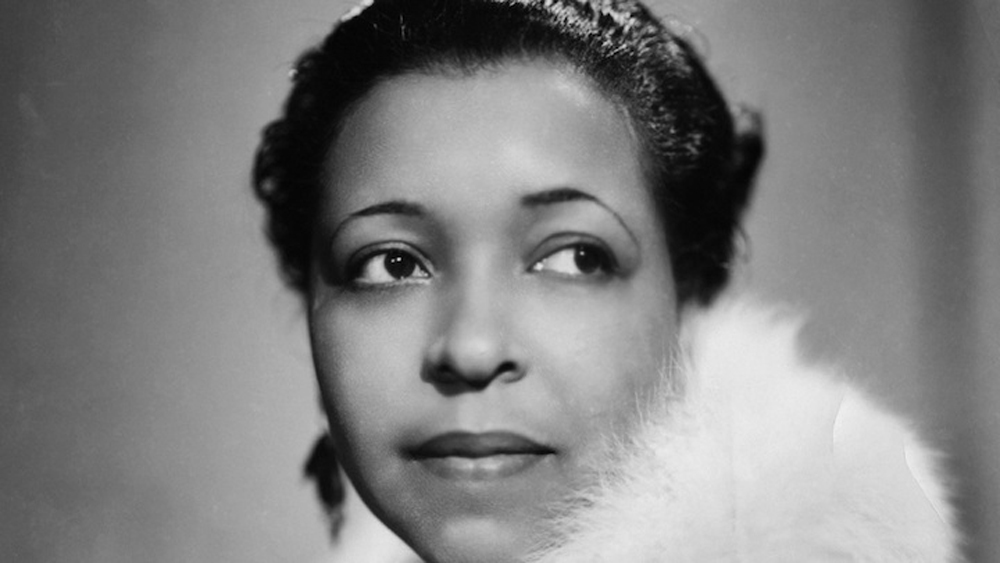
In 1950, Ethel was the first African American actress to star in the TV series “Beulah.” She quit, however, after complaining that the portrayal of blacks on the series was “degrading.”
Despite Ethel’s success, Ethel knew something was missing. As she aged, her golden voice began to fade and her weight ballooned to over 300 pounds, which affected her health.
In the early 1950s, her career seemed finished. She couldn’t find meaningful work, and money was short. “Where I come from,” she said, “people don’t get close enough to money to keep a working acquaintance with it . . . so I don’t know how to keep it.”
By 1955, the IRS hounded her for back taxes and began seizing royalties from her work. “Things were just about at rock-bottom for me,” she said later.
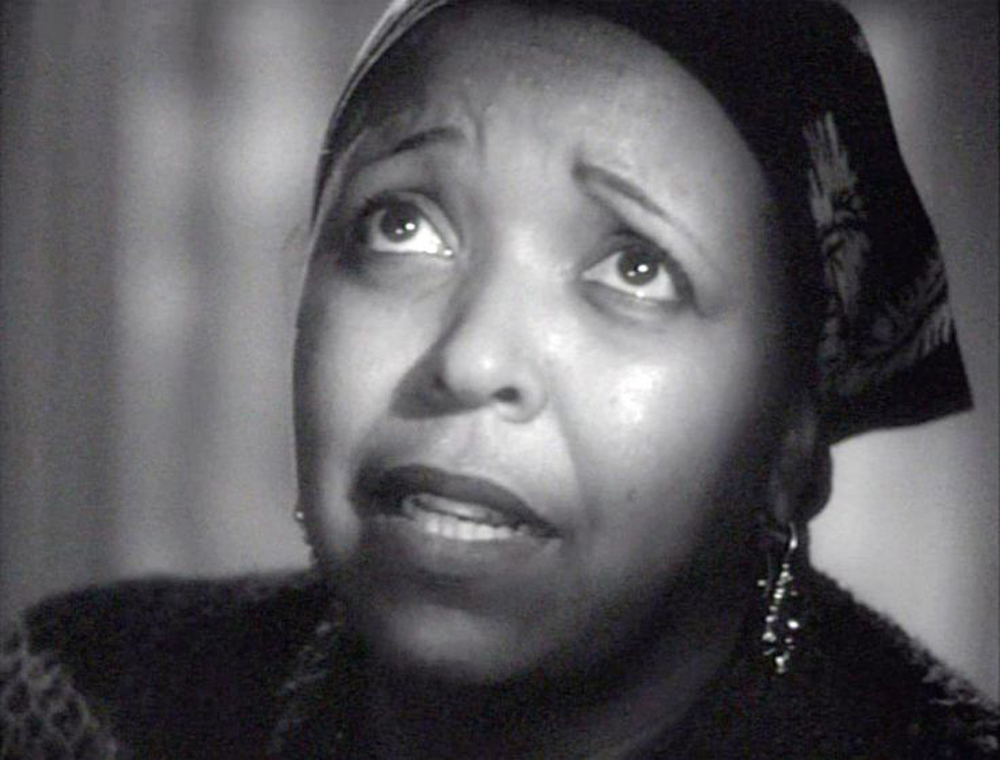
“I had a lot of time to myself and I got to telling myself all the things I’d missed: a marriage that would last, kids of my very own, money I could keep. You know — I even got to feeling sorry for myself that I hadn’t kept at least one copy of all my records…Now — isn’t that something to cry about?”
A turning point came in 1957 when Ethel attended a Billy Graham Crusade in New York.
She had listened to Graham on the radio and wanted to hear him in person. She found herself in the crowd at Madison Square Garden, where his anointed preaching echoed in her heart. On successive nights she went to hear Graham preach, until one night was deeply moved in a profound way.
People at Madison Square Garden noticed the famous singer. On one of the evenings of the Crusade, Cliff Barrows invited her to sing with the choir and she accepted. Barrows asked her to sing, “His Eye is on the Sparrow,” which brought a strong response from the crowd.
Later, she said about that night: “I sang ‘His Eye is on the Sparrow’… and standing there, there was just me and my guilt and Jesus –Jesus who had never left me. He had never, not once, turned away from me. I was the one who had turned away from Him.
“I knew the only thing I had to concern myself with was–forgiveness. Billy Graham had clarified God’s forgiveness for me, and as I sang, I received it, and that honesty the dear Catholic sisters had taught me–the kind of almost dogged honesty that had characterized me all my life–paid off again. I faced up to the fact that I had a decision to make.
“I decided for Jesus…and listened to Billy in peace–peace I’d never known before.”
“I, Ethel Waters, a 380-pound decrepit old lady, rededicated my life to Jesus Christ…and I can tell you His eye is on all of us sparrows.”
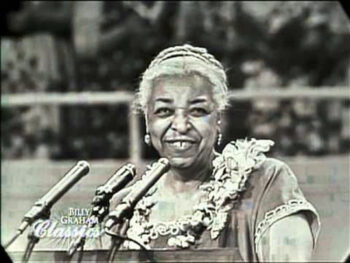
A 16-year-old in the crowd, Rebecca Bafford, was also deeply impacted. “She prefaced the song with, ‘Listen, children….’, and from the first line, ‘Why should I feel discouraged…’ which she articulated with such a nuance of feeling, tears began to come to my eyes!
“She proceeded through several choruses of, “I sing because I’m happy; I sing because I’m free; His eye is on the sparrow; And I know He watches me!” With the mass choir singing along in the background, I really thought I might be raptured at any moment!
“The sheer ecstasy of the whole performance left me feeling like I had been sitting at Jesus’ feet. It wasn’t even that her voice was the most elegant or dynamic that I had ever heard, but the fact she was able to project to her audience something we all felt way down deep in our souls, that intangible quality that literally brought us into the presence of God!”
Ethel dedicated the remainder of her life to touring and singing at many of the Billy Graham crusades, as well as recording several albums of Christian music for Word Records.
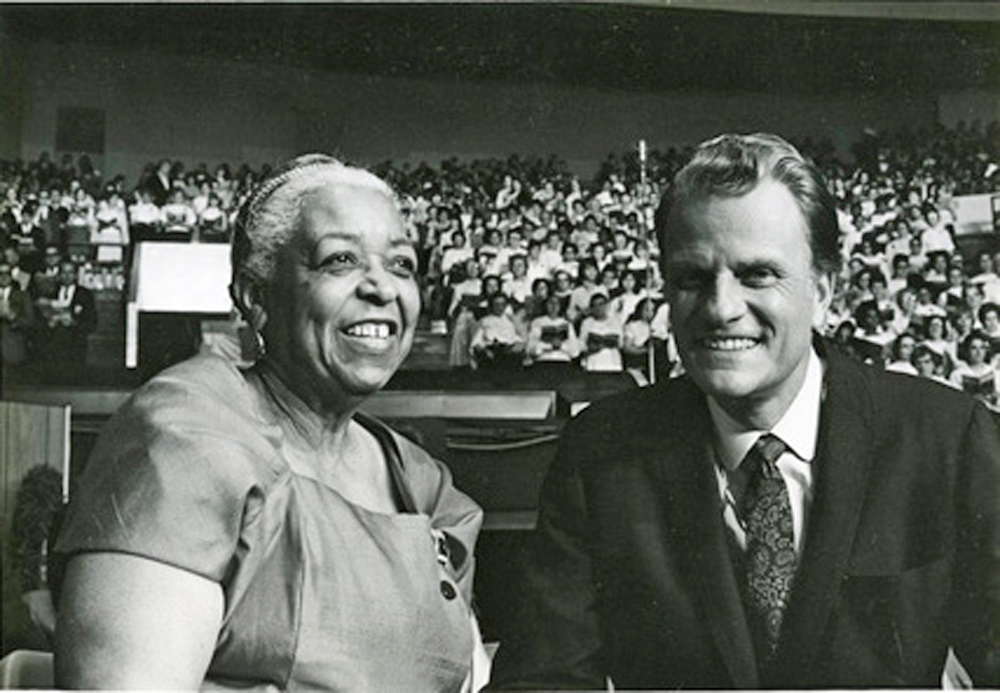
“The voice was gone,” she said. “But that didn’t matter. I could still sing — make a joyful noise to the Lord — and it was a lot different than singin’ blues . . .”
Some people thought she had retired but she said that was “foolish…I’m still working. I work for the Lord.”
At age 76, Ethel wrote, “What keeps me steady in my old age is what I’ve already told – closeness to Jesus. This will keep the young steady, too. He wants to be close to anyone who will let Him. No matter their age. To me it’s wonderful!”
Ethel’s final public appearance was at the Billy Graham Crusade in San Diego in 1976. She passed into the arms of her Savior the following year.
When Graham learned of Ethel’s death, he called her “one of the most unforgettable characters I have ever known . . . a super star not only on stage but in her personal religious faith.”
If you would like to know more about a personal relationship with God, go here


